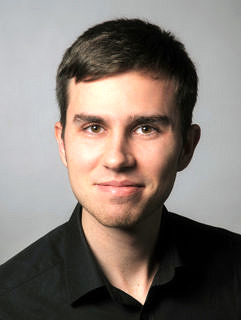We welcome a new alumnus: Maximilian Ries is leaving the Capriccio group
After being a member for more than 7 years, Maximilian Ries is leaving the Capriccio group to build up a research group of his own. On that note, a short retrospective of his time with us is only appropriate:
Max started his doctoral project back in early 2018 and has been a very active member with high motiviation to pose, as well as to answer challenging research questions. He has published 15 peer-reviewed journal articles with seven of them as first author in highly regarded scientific journals and 14 contributions to conference proceedings as well as data publications. In addition, Max has supervised an uncountable number of bachelor, project, and master theses with a lot of them being the basis for peer-reviewed manuscripts. In this regard, Max paved the way to the growth of the Capriccio group by attracting highly talented young researchers and enthusing them for a scientific career. Max was also highly committed to various activities aside of his scientific work: Among others, he organised our “Capriccio juniors” parties and further events to establish close ties between experienced and younger members of the Capriccio group.
Beyond this, Max contributed very much to the successful application and renewal application of the research training group GRK 2423 “FRASCAL”, where he became associated doctoral researcher, as well as to the successfal continuation of Sebastian Pfaller’s project on interphases. A big milestone was also the completion of his doctoral thesis on “Characterization and modeling of polymer nanocomposites across the scales – A comprehensive approach covering the mechanical behavior of matrix, filler, and interphase”, which he successfully defended in a high-ranked international doctoral committee. Based on this excellent thesis, Max was awarded the PhD award of the European Community on Computational Methods in Applied Sciences (ECCOMAS).
We would like to congratulate him once again and take this opportunity to thank him for the extraordinary work he has done in our research group. Now it is time for him to concentrate on his own research endeavors: He is currently preparing a research proposal in continuation of his research projects revolving around multiscale simulations of polymers.
We wish him all the best for his future career in academia!

